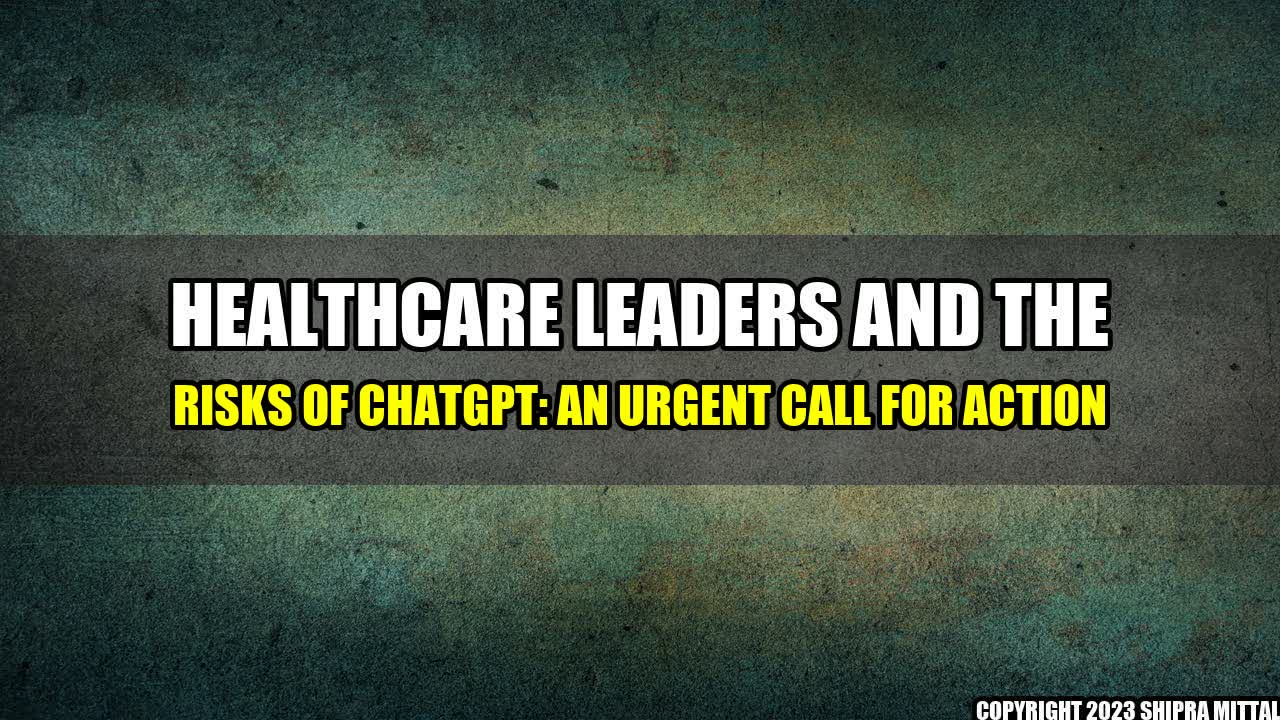It was a typical Wednesday morning when Dr. Maria Hernandez, a renowned cardiologist, received an urgent message from one of her patients through the hospital's chat platform. The message was explicit, describing the patient's symptoms in great detail, and the patient was desperate for immediate help. Dr. Hernandez felt uneasy - she had not seen this patient in months and had no way of verifying their identity. Was this really her patient or an imposter trying to access her medical expertise?
This is just one example of the risks of chatGPT, a growing concern for healthcare leaders around the world. ChatGPT technology uses artificial intelligence to interact with patients through chat platforms, providing medical advice and assistance. While this technology has the potential to improve patient care and access to medical resources, it also poses significant risks, including patient privacy and data security.
Healthcare leaders must come together to address the risks of chatGPT and establish best practices to ensure patient safety and data protection. For example, healthcare organizations can implement authentication protocols to verify patient identities and ensure only authorized personnel have access to sensitive information. Additionally, healthcare providers can develop policies and procedures to assess and reduce the risks of chatGPT technology, and establish accountability mechanisms to mitigate any potential breaches.
To illustrate the importance of action, consider the devastating consequences of a data breach. In 2015, the UCLA Health System experienced a cyber attack that compromised the personal data of 4.5 million patients. The breach led to lawsuits, heavy fines, and significant reputational damage for the organization. Healthcare leaders cannot afford to ignore the risks of chatGPT, as the consequences of failure can be dire for patients and organizations alike.
Conclusion
- The risks of chatGPT are real and imminent, and healthcare leaders must take proactive measures to identify and mitigate them.
- Effective strategies include implementing authentication protocols, developing policies and procedures to assess and manage risks, and establishing accountability mechanisms to address any potential breaches.
- By coming together and prioritizing the security and privacy of patients, healthcare leaders can leverage the potential of chatGPT technology to improve patient care and outcomes, while also avoiding the costly consequences of a data breach.

Social
Share on Twitter Share on LinkedIn